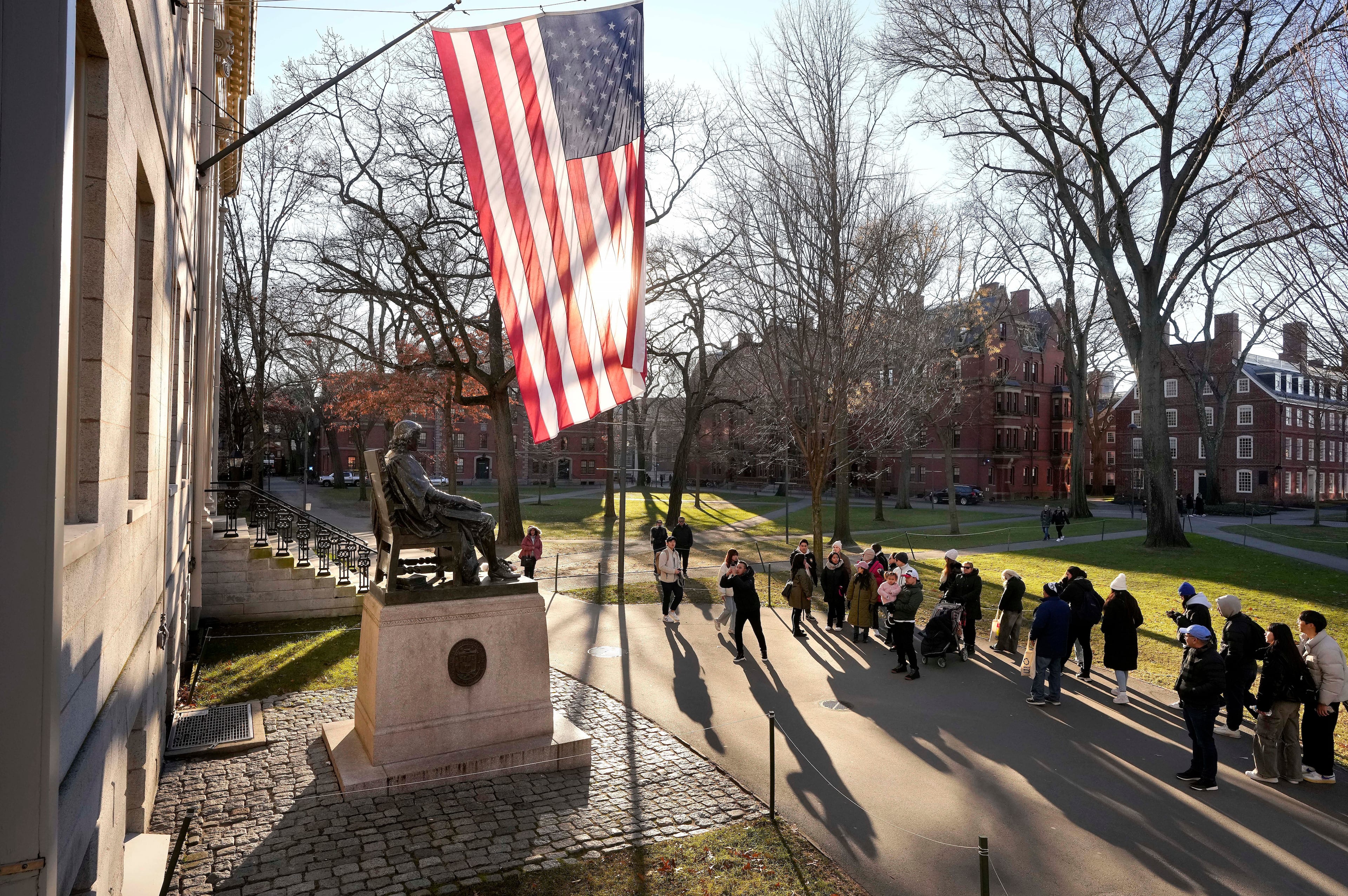Opinion: Teaching students means defending them, as Emory faculty did

The images and videos from Emory University last week are disheartening.
But I want to tell you about the Emory I saw a month ago. The first week in April I visited the Oxford campus of Emory. If you have never been, the grounds look like the most iconic college campus. Gothic halls, lush green quad and about 1,000 students.
That night about 100 students who could have gone to the rock wall or studied in a hammock chose instead to fill an old gym to hear me speak about how faculty organizing can help students. I told them how it could improve their life on campus — tenure helps their favorite professors stick around, for example.
I also told them how it could improve their life after campus. I told them what they learn at Emory can apply later. In other words, they don’t merely learn how to do their profession at Emory but how to defend it.

This often comes in a moment down the road when their self-interested career turns into something that includes others. Maybe it’s when they pass the bar or licensing exam. Or maybe when they discover others don’t respect their profession. Getting people to do this kind of work is the heart of any employee organizing.
This is what we are seeing on campuses across the nation. Students finding ways to stand up for others. And faculty are standing up for students. We faculty want students to learn. Learn how to understand others, not hate. Learn how to understand the religious, social, historical, economic and educational contexts they and we live in. These contexts affect all professions. Yours and mine.
No matter what we teach or what level of student, our profession is our students.
We defend students from people who want to use them for their own agenda. We defend students from people who want to abuse them. We defend students from people who want to silence them. We defend students from people who want to intimidate, harass and demean their identities. And yes, sometimes then we defend students from other students who want to do the same.
Faculty can’t be faculty without students. And students can’t claim the distinction of a degree from places like Emory without faculty. It’s not a transactional relationship. It’s one built on the ethics of our profession. It is built on trust.
As of Friday there had been more than 30 protests on public campuses. With a similar number at private schools, that means these protests number far below the hundreds across the nation after four people were killed at Kent State University and two more at Jackson State University a week later in May 1970. That month changed the nation for decades.
Things are different on campus today. It’s not merely proliferation of laws allowing concealed weapons on campus or new governors eager to repeat their predecessors from that era. It’s a disturbing nadir of public support for higher education. The trust among so many stakeholders is gone.
Maybe you’ve seen the images from Emory.
Maybe you think students claiming to occupy a campus quad should be removed even if all they do is chant. Maybe you call these protests pro-Hamas intimidation of Jewish students. Maybe you would shut it all down — camps and chants.
Maybe you think not only did the protesting students get what they deserve from police but the students were trained in such terrorism by faculty who should have been not merely thrown to the ground but in jail.
These are opinions I have come across in recent days.
They are opinions of my profession. They are also opinions in my profession.
You might be surprised to learn faculty differ on issues, even issues as personal as protests on their campus. But at Emory and other campuses many faculty put aside any differences and showed that their profession was their students.
This profession is certainly not about indoctrination. It’s also not about choosing sides on political issues, though of course our syllabi are filled with politics. If our profession is students, we don’t silence, disrespect, or abuse students because we would be killing our profession.
I work at a college on the margins. We are not an “elite” school nor a flagship. We have students who take out loans, work full-time and struggle not just with coursework but life.
This semester I have had students tell me they have been kicked out of their house, their parents are divorcing, and they just needed time away. They trusted me.
We have not had any protests.
What if we did? What would I do?
I might do what some Emory faculty did on the second day of protests. They wore large name tags that said they were “faculty observers.” They wanted to make sure students didn’t act in a way to get police reaction. They also wanted to observe any police action. If their presence increases safety, maybe professors have some power after all.
I ask you: how do you advocate for your profession?
That is the question I asked of those Emory students a few weeks ago.
If we teach well, they will defend theirs. And I trust that they will defend mine.
Higher education needs your trust at this moment.
Matthew Boedy is an associate professor of rhetoric and composition at the University of North Georgia and conference president of the Georgia chapter of the American Association of University Professors, a national organization that represents the interests of college and university faculty members.


